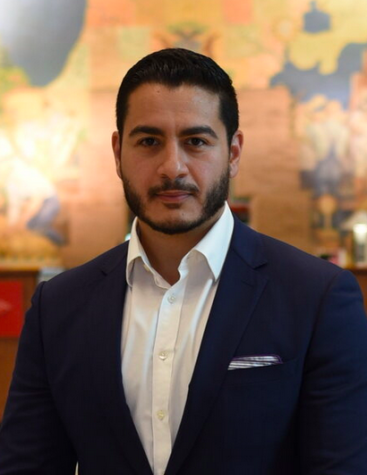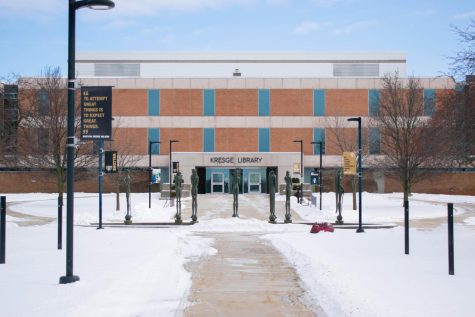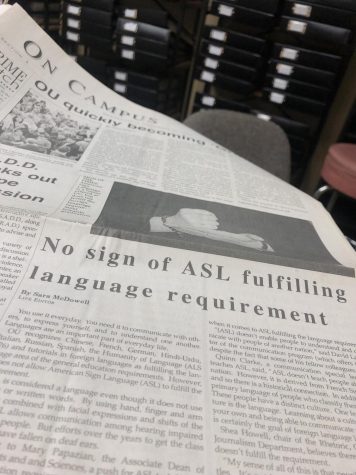Looking Back: Anti-bullying club starts up in 2011
In 2011, a club called Students Against Bullying (SAB) emerged on Oakland University’s campus to bring attention to bullying at all educational levels and, eventually, abolish it.
Tara Michener, a graduate student in the counseling department and a children’s book author, was the founder of the group. She wanted to take action against bullying, saying, “I think it’s great to research and talk about [bullying], but it’s even better to do something about it.”
Dr. Michael P. Chaney, an associate professor and coordinator of addictions specialization, was the faculty advisor for SAB. He believed it would be a good resource for students to reach out to.
“I think students come to college to learn, not to be bullied or end up [as] a suicide statistic,” Chaney said. “Students need a safe place where they can talk about their bullying experiences, and I think this group is a great opportunity for that.”
SAB believed it was important to combat bullying on college campuses, not just in elementary through high school.
Michener explained that bullying can take more than one form in university settings.
“I think that if you live in the dorms, there might be a situation there with a roommate or friends that want you to feel like you are not as good as other people,” she said. “I think that if you are in class and maybe you give a wrong answer you might get laughed at. I do think a professor could even do that to you and make you feel as if you are not as good as everyone else.”
Moreover, opinion-based classroom discussions could be another place for bullying.
“If you are in a discussion and there’s no exact right or wrong view, I think that can get heated and turn into bullying if you’re not careful,” Michener said. “I do think that at times name calling can fall into place or people can take things personally and turn things into something that it’s not.”
Chaney believed that cyberbullying or hazing was another form of bullying. Groups like sports teams, fraternities and sororities have examples.
“[Bullying] on a college campus also looks like physical harassment, sexual harassment and racial harassment.” Chaney said.
SAB hosted many events during their time at OU, organizing many in October for National Bullying Prevention Month.
Michener developed her own video series called “Out of the Box,” where participants explained how they have been put in a box or given a label. They continued to explain how they’re more than what they had been labeled as.
“I think that we can be labeled, we can be boxed in, we can be defined in so many ways, but typically when that happens, it limits our true potential,” Michener said. “So we’re going to be going around campus and seeing if people want to do these little videos.”
SAB no longer is an active student organization within OU, but should any student experience bullying or harassment, they are encouraged to contact the dean of students office.







